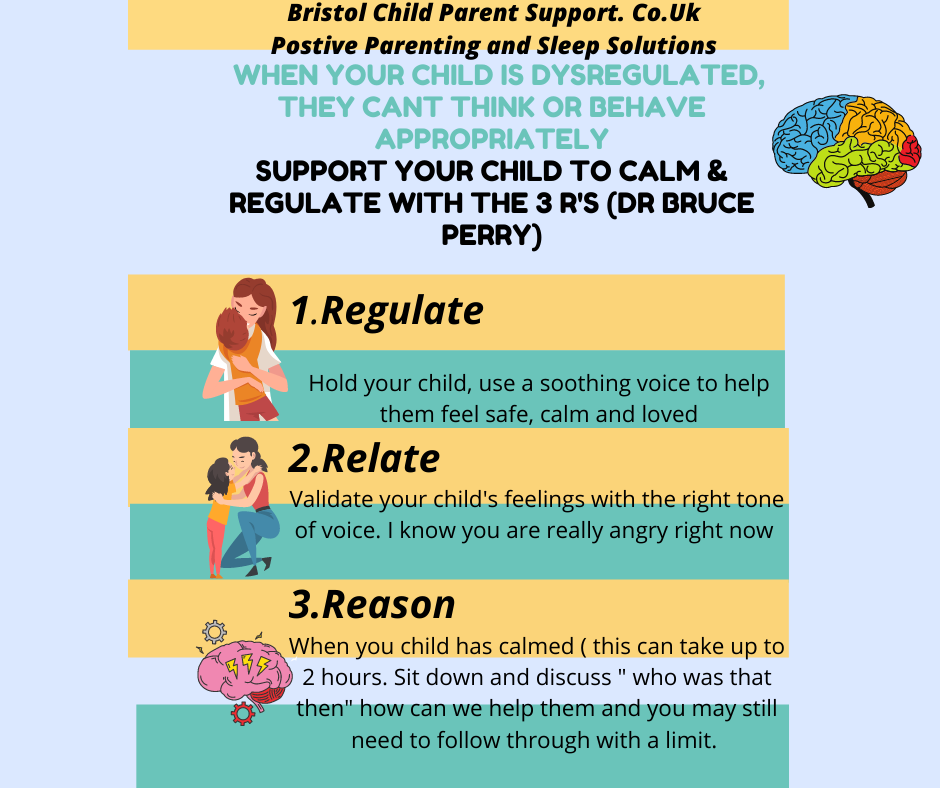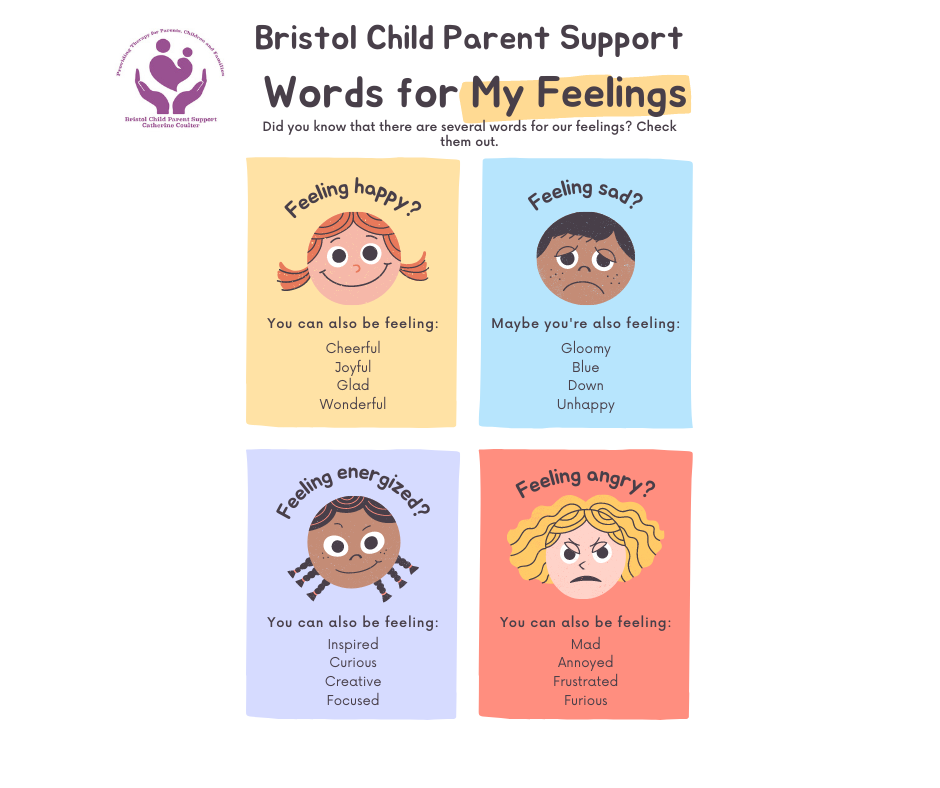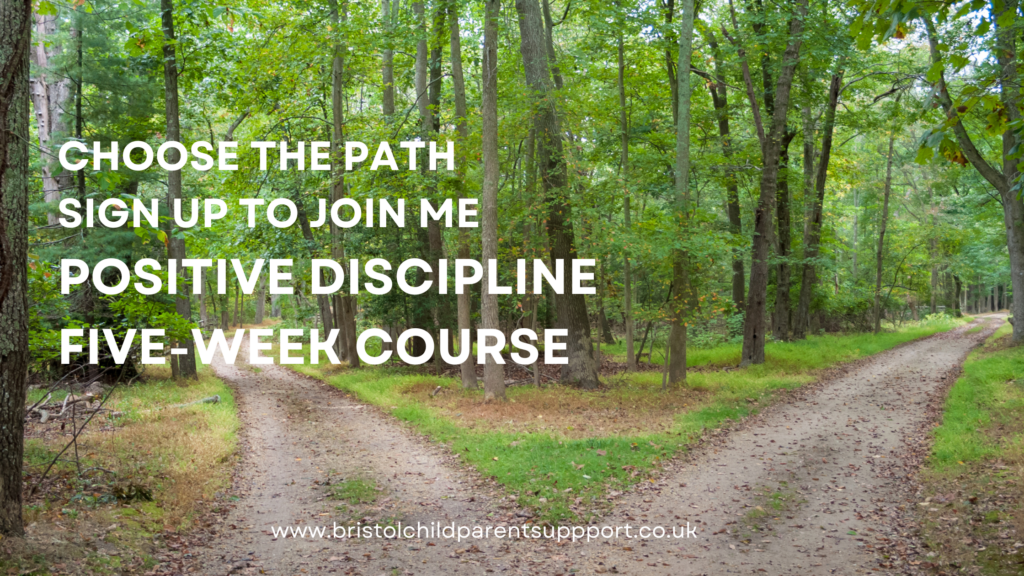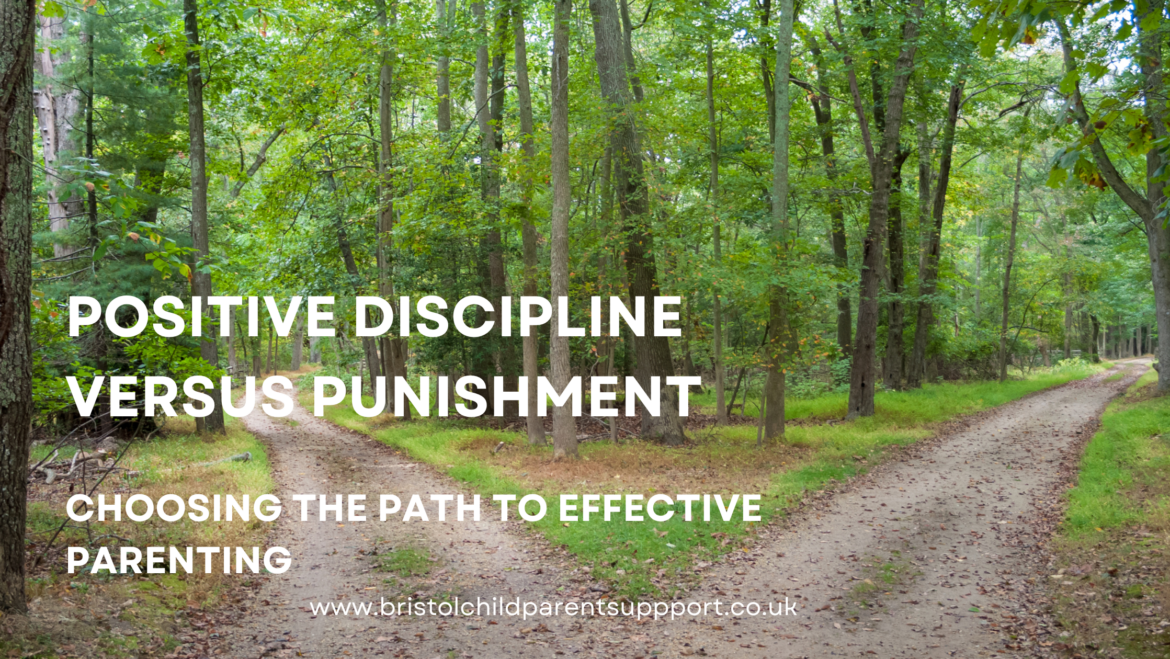I totally understand how challenging it can be when our children question our authority. It’s a common theme that many parents face in my practice.
Finding the right balance in disciplining our children can feel like a roller coaster ride, especially when it is constant. But here’s the thing: it’s completely normal for children to question authority as they grow and assert their independence. Our goal, however, is to guide them in the right direction without resorting to harsh punishments that can harm their self-esteem and hinder emotional growth.
In this blog, we’re going to dive deep into the fascinating world of discipline versus punishment. We’ll explore the contrast between the two and uncover some super-useful strategies to handle those everyday challenges with confidence.
What is Positive Discipline?
Positive discipline and punishment are two different approaches to parenting that aim to shape a child’s behaviour.
Positive discipline focuses on teaching and guiding children through positive reinforcement and respectful communication. It emphasises understanding the underlying reasons for a child’s behaviour and finding constructive ways to address it. Positive discipline involves setting clear expectations, providing consistent boundaries, and using techniques such as encouragement, rewards, problem-solving, and logical consequences to encourage desired behaviour. It aims to foster a strong parent-child relationship based on trust, empathy, and mutual respect.
How is punishment used in parenting?
Punishment is a more traditional approach that involves using negative consequences to deter unwanted behaviour. Punishment often involves imposing immediate penalties or withdrawing privileges as a means of discipline. Parents seldom provide explanation or allow verbal give-and-take.While punishment may initially deter negative actions, it fails to effectively educate children on how to make positive decisions and comprehend the repercussions of their behaviour. Punishment often relies on fear and humiliation as a means of behaviour modification.
The key difference between positive discipline and punishment lies in their underlying philosophies and long-term effects. Positive discipline focuses on teaching children valuable life skills, problem solving, promoting emotional regulation, and fostering a healthy parent-child connection. It encourages children to learn from their mistakes and develop a sense of responsibility. Punishment, on the other hand, tends to focus more on immediate compliance and may not provide children with the tools they need to make positive choices in the future.
Ultimately, positive discipline aims to create a nurturing and supportive environment where your child thrives. While punishment, if used consistently may inadvertently create a cycle of negative behaviour and mutually rejecting relationships.
Parenting brings up ” big feelings” in everyone
It’s true that parenting is a deeply emotional journey filled with a range of feelings and experiences. We can feel immense love, joy, and compassion, but we can also experience stress, fear, resentment, and shame. It’s important to acknowledge that each parent’s journey is unique, shaped by their own upbringing, cultural influences, and personal beliefs.
In the past, disciplinary methods such as smacking were considered acceptable, but nowadays, we understand that they align with an authoritarian parenting style and know that this style of parenting is ineffective.
This realisation has led to a shift in our approach to parenting. However, sometimes, this conditioning can still influence our reactions, leading to what we call “reactive” parenting”
Reactive parenting can manifest in different ways, such as:
- You versus me, polarised thinking: It’s easy to get caught up in a power struggle with our children, viewing situations as a battle of wills rather than seeking understanding and cooperation.
- Taking it personally: We may misinterpret our child’s behaviour as a personal attack, leading us to react defensively instead of responding with empathy and understanding.
- Defensive and misreading the context of the interaction: Our own conditioning can cloud our judgement, causing us to misinterpret our child’s intentions or emotions, leading to unnecessary conflict.
- Operating in survival mode: When we’re constantly on edge, our stress response can be triggered easily, making it difficult to respond calmly and effectively to our children’s needs. (This is from Brain-Based Parenting. The Neuroscience of Caregiving for Healthy Attachment by Daniel A. Hughes, PhD., Jonathan Baylin, PhD. a great book).
Recognising these patterns and understanding the impact of our conditioning is crucial in breaking the cycle of reactive and punitive parenting. This is not about assigning blame. It does not define your identity, but rather, it is a result of your experiences. Nevertheless, we acknowledge our responsibility to change, heal, and recover, and we may need to be supported in this process.
Punishment as a parenting style can harm a child’s brain development
Thanks to the advancement of brain scans and research, we’ve learnt about how different parenting styles affect a child’s emotional development. We now know that an authoritarian parenting style is less than ideal for the evolving emotional brain of a child. It can have a significant impact on a child’s developing brain. When children experience punishment, particularly harsh or frequent punishment, it can trigger stress responses in their brains. There is more in this blog, Your Child’s Emotional Brain
It is crucial for young children to develop emotional regulation and self-control skills, and the role of parents in facilitating this development cannot be overstated.
When a child is often punished or lives in a constant state of fear of punishment, it becomes a habitual reaction. As a result, their instinctive fight-or-flight response can be easily activated, even in minor moments of irritation. Furthermore, their emotional (limbic brain) dominates, ignoring the impact of their logical reasoning. You might have to manage outbursts, fits of rage, and harmful actions like property destruction. Research shows harsh parenting practises are a risk factor in externalising disorders such as Oppositional Defiant Disorder.

Furthermore, punishment can create a negative association with authority figures and erode trust between your child and you. This can hinder the development of secure attachments and healthy relationships, which are crucial for a child’s social and emotional well-being. Moreover, punitive parenting can also lead to children becoming bullies or being bullied in school.
The good news is we can make changes without having to use punishment.
Having knowledge and being aware allows us to break free from repeating the same disciplinary methods we may have grown up with. We can instead explore alternative strategies and consider more impactful approaches. Here are a few ideas to help you begin.
Positive Discipline Tips
1.Understanding age appropriateness and adjusting expectations.
It may come as a surprise, but when it comes to effective discipline, it’s crucial to consider age-appropriateness. And by that, I don’t mean whether a specific form of discipline is suitable for a certain age group. What I mean is that as parents, we need to reevaluate our expectations of our children’s behaviour and ensure they are realistic and appropriate for their developmental stage.

Often, parents have higher standards for their children’s behaviour than their children are capable of meeting. It is important to note that self-control typically develops between the ages of five- six.
This means:
- They can go from 0 to 10 in their emotions without always being able to explain why.
- They may not fully grasp why they are expected to behave in a certain way, and they may struggle to follow reasoning at times.
- They tell you they want to go now, when waiting in a queue
- Additionally, their memory processing is still developing, so they may have difficulty remembering and following your multiple instructions or commands.
It is very exhausting….but by understanding and acknowledging their developmental stage, we can adjust our expectations and approach discipline in a more compassionate and understanding manner. We can think: Ah, that’s their six-year-old brain. It allows us to guide and teach them in a way that aligns with their current abilities and helps them grow and learn at their own pace.
2.Identifying the root cause
Most parents find it difficult to understand why their child is behaving in a certain way. Parenting can be hard and challenging, and then you are expected to play the detective, carefully observing and deciphering the basis for their behaviour.
Oh, mornings can be quite a challenge for parents, can’t they? It’s like a race against the clock to get everyone ready and out the door on time. But what if we approached these situations with a problem-solving mindset and a sprinkle of positive discipline?
Imagine this typical morning scenario: You rush into your child’s room, desperately trying to wake them up. You keep repeating, “Wake up, we’re going to be late!” Then, you ask them to get dressed multiple times, throwing in a few “hurry up” reminders. But your child seems to be stalling, getting upset, and maybe even wanting to play instead. Frustration levels rise, and it feels like a never-ending battle.
Let’s problem-solve together
Now, let’s move into a different approach, one where you sit down with your child and really understand what’s going on. You become a detective, observing and deciphering the basis for their behaviour. And guess what? You discover that they were acting out because they simply wanted a little bit of playtime before heading off to school. Ah, the root cause of the problem reveals itself!
It turns out that with after-school clubs and busy schedules, your child just needs a little time to themselves before the whole day started. They craved a moment of play and relaxation to set a positive tone for the day ahead. Makes sense, doesn’t it? Let them know that you understand their need for playtime in the mornings. Together, you can brainstorm some solutions that work for both of you. Maybe you can wake them up a bit earlier to allow for a 10 minutes of play.
Of course, it’s still important to set clear expectations about being on time. So, even with the extra playtime, it’s important to let your child know that you’ll still be leaving for school on time, regardless of whether they’ve finished changing, brushing their teeth, or combing their hair. This natural consequence serves as a gentle reminder for them to manage their time effectively. But also, you are clear that by having some time to play, you still need to leave the house on time and a logical consequence is to leave without socks and coat etc.
Throughout this process, it’s crucial to use encouraging words to acknowledge their efforts when they complete their tasks on time. By doing so, you’re reinforcing positive behaviour and showing them that you appreciate their efforts.
3.Using encouragement more than praise
How we use words is essential; encouragement can be more effective than praise. By using encouragement, you are highlighting the effort, growth, and specific skills your child is demonstrating. This helps them develop a growth mindset, where they understand that their abilities can be developed through hard work and dedication. It also encourages them to focus on their own progress and internal motivation, rather than seeking constant external validation.
Let’s explore some examples of how you can incorporate encouragement into your interactions with your child:
- Instead of saying, “Good job!” When your child completes a task, you can say, “I noticed how hard you worked on that. You should be proud of your effort!”
- Rather than simply saying, “You’re so smart!” When your child solves a problem, you can say, “I can see how you used your problem-solving skills to figure that out. Keep up the great work!”
- Instead of just saying, “You’re the best!” When your child performs well in a competition, you can say, “I admire your effort and the progress you’ve made.”
- Instead of only saying, “You’re so talented!” When your child creates a piece of art, you can say, “I love how you expressed your creativity ( look at the colours, shapes etc) in this artwork. Keep experimenting.
- Rather than just saying, “You’re a natural!” When your child excels in a particular activity, you can say, “I can see how much you’ve improved through practice. Your hard work is paying off!”
4. Consistency
This is super easy to say, but it can be tough to do. It takes some work and patience. I like to think of it like baking a cake when I talk about consistency.
Imagine you’re baking a cake. Follow the recipe carefully, measuring out the ingredients and mixing them together. But then, instead of putting the cake in the oven for the recommended time, you decide to take it out early because you’re in a hurry. What happens? The cake ends up under-cooked and not as delicious as it could have been.
Well, consistency in parenting is a bit like baking that cake just right. When we’re consistent with our rules, expectations, and consequences, we create a stable and predictable environment for our children. They know what to expect, and it helps them feel secure and understand the boundaries.
It is important for parents to be on the same page when it comes to discipline. Consistent discipline requires both parents to be on board with the rules and consequences that have been established. This helps to avoid confusion and mixed messages for the children.
Inconsistency in discipline can lead to confusion and frustration for children. If the rules are constantly changing or consequences are not enforced, children may not take the rules seriously. This can lead to defiance and a lack of respect for authority.
The importance of following through
One of the key components of consistent discipline is follow-through. If a consequence is given for a certain behaviour, it is important for parents to follow through with that consequence every time the behaviour occurs. This helps to reinforce the rules and expectations that have been set in place.
Overall, consistent discipline is essential for helping children learn right from wrong, develop self-control, and become responsible individuals. By establishing clear boundaries, enforcing consequences, and being on the same page as parents, children can learn valuable lessons that will help them navigate the world around them.
Consistency also helps our children learn and understand the values and behaviours we want to instil in them. When we consistently reinforce positive behaviours and address negative behaviours, it sends a clear message about what is acceptable and what is not. It helps them develop important life skills like self-discipline, responsibility, and respect.
5. Emotion Coaching
What is Emotion Coaching?
Not surprisingly, children who appropriately regulate emotions have been found to display greater social competence, better social skills, and cognitive skills. This means they can get on better and have secure and fulfilling relationships with others. So this is a number one skill for parents to promote.
Understanding different emotions and how to manage them, especially in times of difficulty, enables young people to manage their emotions more effectively.
Through empathy, parents can teach or guide their children about more effective responses. You can check it out further with one of my most popular blogs, https://bristolchildparentsupport.co.uk/emotion-coaching-the-power-of-connection/.
There are five steps:
1. Being aware of your child’s emotion
Unfortunately, you need to be aware of your emotions to attend to your child. This is not easy if we experience blocked care from our parents. You may need to work on your feelings and emotions first.
Try and stay calm and use gentle language.
You could say: “I see something is up.” We can so often give up if there is no response, but keep the opportunity open by acknowledging “maybe it’s not the right time, but do come and talk to me later/or if it’s okay with you, I might ask you again later.”

2. Recognising emotion as an opportunity for intimacy and teaching
When our home feels like a battleground, it is so hard to hold onto the positive in the situation. Challenge negative thoughts. Teach yourself “self-talk”, you might say:
“I am doing my best, and so are they right now.”
3. Listen empathically and validate the child’s feeling
This is the most important but challenging step; it shows “I understand you and your experience.” Empathising involves putting yourself in their shoes and conveying an understanding of their experience as they experience it. This consists of imagining what the situation must be like for them.
4. Help your child label the emotions verbally

5. Setting clear intentions, picking your battles, and using problem-solving
When it comes to parenting, setting clear intentions, choosing your battles, and using problem-solving techniques can make a world of difference. It also encourages consistency. Hosting a weekly family meeting allows for the chance to tackle and resolve various issues all at once, rather than solely focusing on one child. While there may be times when this is appropriate, it can greatly alter the dynamics of your family. Trust me, it can have a significant impact!
During these meetings, you get the chance to explain the reasons behind your expectations. It’s all about letting everyone in on the why, rather than resorting to the classic “because I said so” approach. Adults and children alike appreciate knowing the purpose/intention behind what they’re asked to do.
Now, let’s talk about being a dictator versus being a parent. We all want to be the latter, right? By fostering open communication and involving everyone in decision-making, you create a more collaborative and respectful environment. It’s all about finding that balance.
Of course, you can’t tackle every single issue that comes up. That’s where picking your battles comes into play. My top three were:
- Safety
- Health (emotional as well as physical).
- Avoiding harm to others (including people, animals, and property).
These are non-negotiables, meaning that what you choose to do after them is ultimately up to your family. However, it is recommended to approach them one at a time, and to do so with a clear and deliberate intention. There are further ideas in a blog I wrote Setting Effective Limits
Now, here’s the exciting part: you don’t need to be a therapist to implement family meetings at home. It’s one of my absolute favourite tools from the Positive Discipline approach. Sure, it might take some time to get used to, but trust me, it’s totally worth it. If you want an idea to get started, I’ve got a podcast you can listen to below.
In Conclusion
Which path are you going to choose? I hope this blog helps you along your way.
Thank you for taking the time to read this, and thank you for your commitment to the well-being of your child and your family and for your willingness to keep learning and growing. Remember: parenting is hard work, especially when we carry our own conditioning. Seek help and support if you want to transform it. Contact me for a consultation or to organise a workshop for your education community or friends. Let’s create a warm, intentional, contained, and nurturing environment together. With Gratitude Catherine
Are you interested in coming together with other parents facing the same issues as you?
I am a certified trainer in the Incredible Years and have over three decades of experience. If you’d like to participate in an in-person five-week positive parenting programme during the summer/Autumn of 2024, please contact me or join my newsletter so I can add you to the mailing list for more information.

Related Posts:
Understanding Tantrums and Meltdowns



